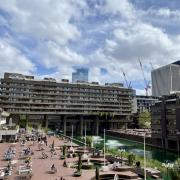
What started in the summer of 2016 and hasn’t been brought to a conclusion three years since? You probably don’t even need me to tell you. If I were to ask you, however, what will happen as a result, I am sure even those who may think that they are politically informed will take a few minutes of deep consideration before hesitantly giving an ambiguous answer.
Thus, having expressed some of my queries to a man who serves our borough while trying to hold Brexit by the reins at Westminster - South Croydon MP, Chris Philp - let me dispel the myths and misunderstandings that may surround you.
CHRIS PHILP’S PERSONAL OPINION
“Since the referendum, I have been consistent in that the referendum result of 2016 must be respected. There have been some who have said that it should be ignored as it was only “advisory” but I simply disagree. The Government of the day spent over £9 million telling every household in the country that whatever the result, it would be delivered. We cannot go back on this promise. Although I supported remain and I know many in Croydon South did too, this was a national vote. Both sides in the campaign exaggerated. David Cameron clearly advised of the economic risks but people voted leave anyway.”
HOW WILL EMPLOYMENT AND HOUSING BE AFFECTED?
Firstly, he believes that “the increased trade which the UK will be able to conduct will go a long way to creating more jobs in our economy”. This gives a sense of hope that the UK will achieve a trade deal with countries such as the US, China or even the EU. Not only that, he is “made confident” by “KPMG positive prediction for the UK’s housing market post-Brexit which forecasts that house prices should stabilise and then climb by 1.3% in 2020”. If this is the case, we can be assured that the effects of Brexit on our property will be short-term since the he believes that the economy will be revitalize itself.
WHAT IS THE CURRENT SITUATION FOR NEGOTIATION?
It isn’t as catastrophic as you think it is. Chris Philp feels that the new deal the Prime Minister has announced with the EU “protects the Good Friday Agreement” because it is “crucial” for any deal to protect the peace process in Northern Ireland. Furthermore, this deal will go far in limiting any economic shocks which may arise as a result of Brexit. Given that the UK is “already in regulatory alignment with the European Union”, being able to strike a post-Brexit trade deal should be “a surmountable task” that will enable businesses to continue trading with our European partners.
WHAT IS THE PLAN TO MANAGE THE IMPACT OF A NO-DEAL BREXIT?
“With regards to leaving the EU on WTO terms, I would still prefer that we are able to secure an orderly exit from the European Union with a deal. A deal that secures jobs, the economy and thefree movement of goods. Although I am confident that a deal will be reached, I recognise the need to ensure that we are able to walk away if no deal can be made. I am pleased to see the level of preparedness that we have reached as a country for the possibility of a WTO exit. We have made significant investment in our ports for example which would allow more goods to be transported.”
To conclude, whether you like it or not, Brexit will happen and we must do our part to be enthusiastic, to be aware and be optimistic of the future during this time of bitter division.
By Jonathan Peter-Rajan


























